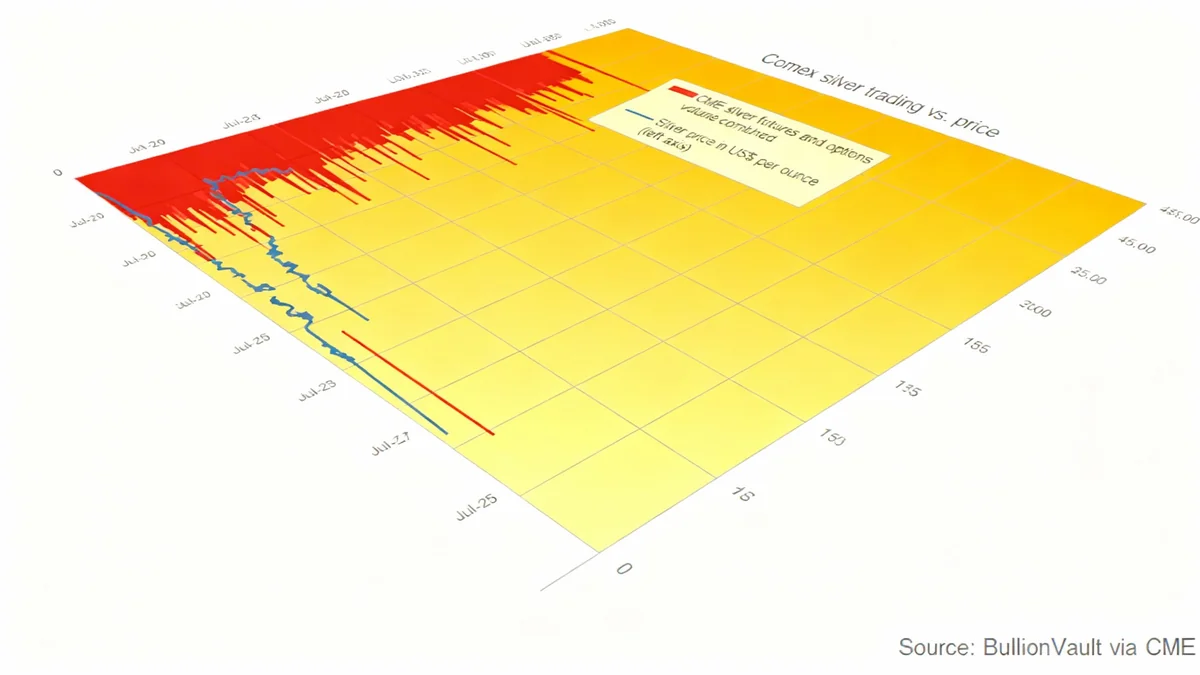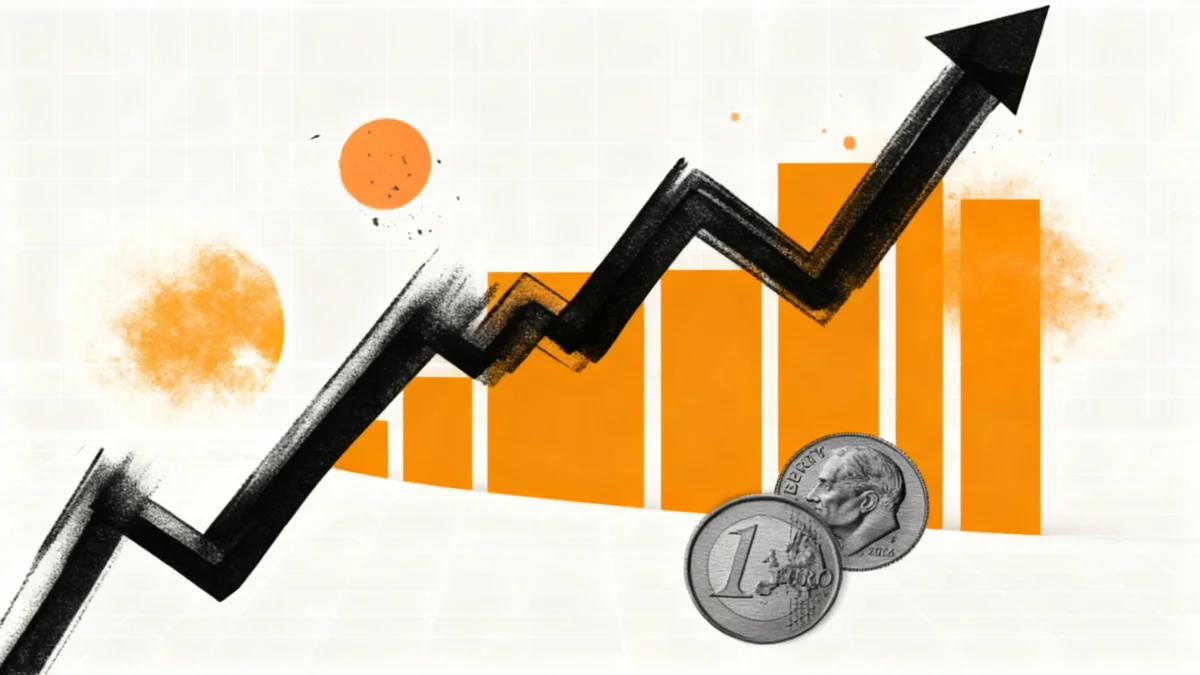Delta Air Lines reported quarterly financial results that surpassed analyst expectations on Thursday, leading to a significant increase in its stock price. The positive performance also lifted shares across the broader airline industry, signaling strong investor confidence fueled by resilient travel demand.
The Atlanta-based carrier pointed to robust demand for premium seating and international travel as key drivers of its financial success. The results suggest that consumers continue to prioritize spending on travel despite broader economic concerns, providing a positive outlook for the sector heading into the final months of the year.
Key Takeaways
- Delta Air Lines announced quarterly earnings and revenue that exceeded Wall Street forecasts.
- The company's stock (DAL) experienced a significant single-day gain following the announcement.
- Strong performance was attributed to high demand for international routes and premium cabin sales.
- The positive news created a ripple effect, boosting the stock prices of other major U.S. carriers.
- Delta issued an optimistic forecast for the upcoming quarter, citing stable booking trends.
Delta's Impressive Quarterly Performance
Delta Air Lines delivered a strong financial report for its most recent quarter, demonstrating the carrier's ability to capitalize on the ongoing strength in air travel. The company posted an adjusted earnings per share (EPS) of $2.15, comfortably beating the consensus analyst estimate of $1.88. Revenue for the quarter reached $14.9 billion, also surpassing expectations.
Company executives highlighted several factors contributing to the robust results. International travel was a standout performer, with revenue from transatlantic and transpacific routes showing double-digit growth compared to the previous year. This indicates a sustained global appetite for travel that has become a reliable revenue stream for major carriers.
Furthermore, sales from premium products, including First Class and Delta Comfort+, were a significant contributor to the airline's higher-than-expected profitability. This trend suggests a willingness among both business and leisure travelers to pay more for enhanced comfort and services, boosting profit margins for the airline.
Operational Highlights
According to the company's report, Delta achieved an operational completion factor of 99.8% for the quarter, underscoring its focus on reliability. The airline also reported an on-time performance rate of 87%, a key metric for customer satisfaction and operational efficiency.
Market Reacts with Widespread Optimism
Investors responded enthusiastically to Delta's earnings announcement. Shares of Delta Air Lines (NYSE: DAL) surged more than 7% in Thursday's trading session, marking one of its best single-day performances of the year. The trading volume for the stock was nearly double its daily average, indicating strong buying interest from institutional and retail investors alike.
The positive sentiment was not limited to Delta. The news acted as a catalyst for the entire airline sector. Other major carriers also saw their stock prices rise:
- American Airlines (AAL) stock increased by approximately 5.5%.
- United Airlines (UAL) shares climbed over 6%.
- Southwest Airlines (LUV) also saw a gain of around 4%.
This industry-wide rally suggests that investors view Delta's success as a barometer for the health of the entire U.S. airline market. The performance eases some concerns about the potential impact of fluctuating fuel prices and economic uncertainty on airline profitability.
"Delta's results confirm that the demand for air travel remains incredibly resilient," noted a senior airline industry analyst. "Their ability to drive revenue from premium and international segments is a blueprint for success in the current environment, and the market is rewarding that strong execution."
Underlying Trends Fueling Airline Growth
The strong performance reported by Delta is rooted in several persistent market trends that have defined the post-pandemic travel landscape. These factors continue to provide a tailwind for the industry, even as other sectors of the economy show signs of slowing.
Sustained Demand for Experiences
A fundamental shift in consumer spending habits continues to benefit airlines. Many individuals and families are prioritizing spending on experiences, such as travel, over the purchase of physical goods. This phenomenon, often referred to as the "experience economy," has created a durable base of demand for leisure travel that has proven less sensitive to economic pressures than initially feared.
Background on Travel Demand
Following the global travel shutdowns in 2020, pent-up demand led to a surge in bookings often called "revenge travel." While that initial, intense wave has subsided, it has been replaced by a more stable and normalized pattern of strong demand, particularly for international and vacation destinations.
The Rise of Blended Travel
The widespread adoption of remote and hybrid work models has created a new category of traveler. So-called "blended travel," where individuals combine business with leisure, has extended peak travel seasons and increased demand on routes that were traditionally less popular for corporate flyers. Airlines have adapted by offering more flexibility and services catering to these travelers, who often stay longer and spend more at their destinations.
Future Outlook and Potential Challenges
Alongside its impressive quarterly results, Delta Air Lines provided an optimistic outlook for the remainder of the year. The company's management stated that booking trends remain solid and that they anticipate continued strength in both revenue and profitability. This positive guidance further reinforced investor confidence on Thursday.
However, the industry is not without its challenges. Airlines must continue to navigate several key risks:
- Fuel Price Volatility: Jet fuel remains one of the largest and most unpredictable expenses for airlines. Geopolitical events can cause sudden spikes in oil prices, which can quickly erode profit margins if not managed through hedging strategies and fare adjustments.
- Labor Costs: Following a series of new contract negotiations across the industry, labor costs have risen significantly. Airlines must balance competitive employee compensation with the need to maintain cost discipline to ensure long-term profitability.
- Economic Headwinds: While travel demand has been strong, a significant economic downturn could eventually impact consumer discretionary spending. The industry's performance remains linked to the overall health of the global economy.
Despite these potential obstacles, the latest results from Delta suggest that major airlines are well-positioned to manage these challenges. Effective capacity management and a focus on high-margin revenue streams are proving to be successful strategies, providing a clear path forward for growth in a dynamic market.





